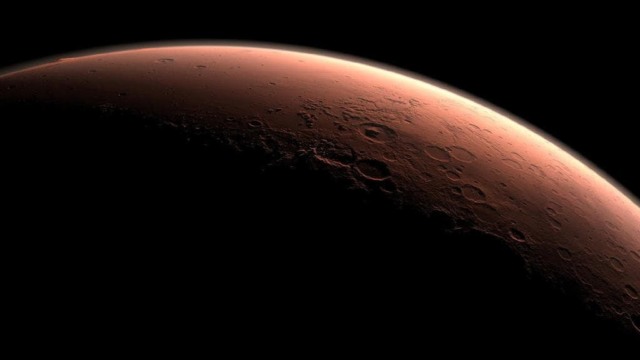Magnetic field on Mars pulsates at night. But, we have no idea the reason!

This week’s cosmic head scratcher in the news comes from within our own solar system. Apparently, the magnetic field on Mars pulsates at night.
Gizmodo:
NASA’s Mars InSight lander has observed mysterious nighttime pulses that can last as long as two hours, according to a conference proceeding.
National Geographic reports that the InSight team released several new results at the joint meeting of the European Planetary Science Congress and the American Astronomical Society. These results include measurements of the Martian magnetic field and more evidence for liquid water beneath its surface.
InSight launched and landed back in 2018, carrying three planetary science instruments, as well as auxiliary instruments like the magnetometer, the first ever used on Mars. A team led by Christopher Russell at University of California, Los Angeles analyzed data from the magnetometer, finding that the InSight landing area has a strong magnetic field, that electric currents travel through the ionized portion of the planet’s atmosphere, and that, occasionally, the magnetic field pulses at night.
These pulses can last up to two hours and are strongest in the north direction, according to the conference abstract. Pulses themselves aren’t strange, according to the NatGeo report, but the fact that the pulses only happen near midnight is. Scientists don’t yet have an explanation for the pulses but hope to use these measurements to understand the differences between the magnetic fields of Earth and Mars.
More evidence of water on Mars is always exciting, given that the planet may have once harbored worldwide oceans. Scientists in this case used the magnetometer to find a deep, conductive region below the Martian surface, according to NatGeo. But there’s more research needed before conclusively identifying this region, and none of this data has yet been peer reviewed.
InSight has only been taking data for less than a year, and it just woke up from solar conjunction, so there’s still plenty more for the probe to discover and learn. Hopefully its heat probe can soon get un-stuck.



